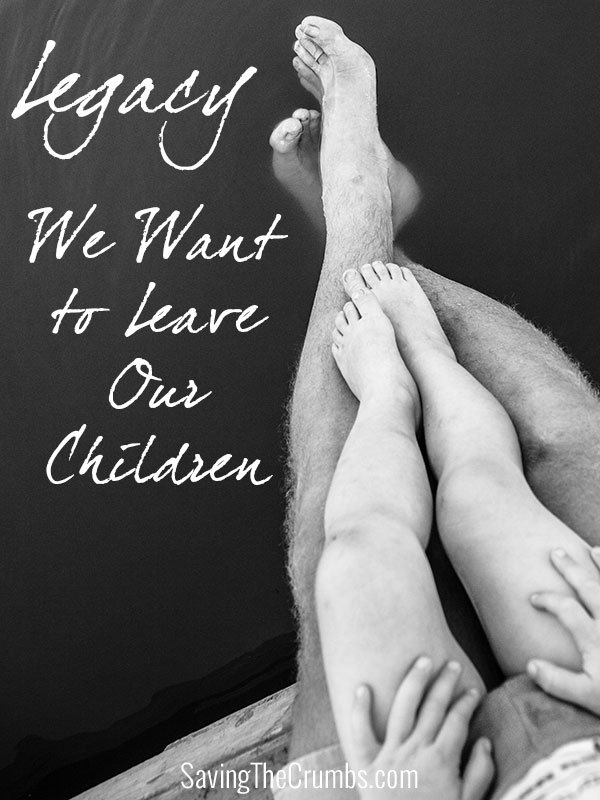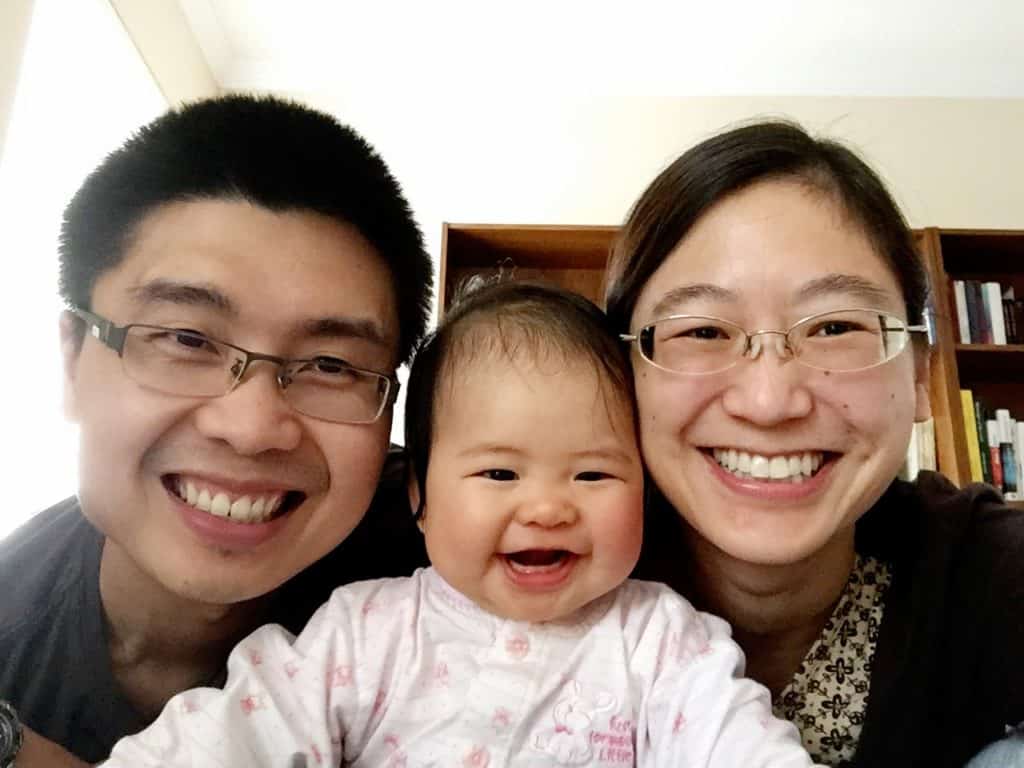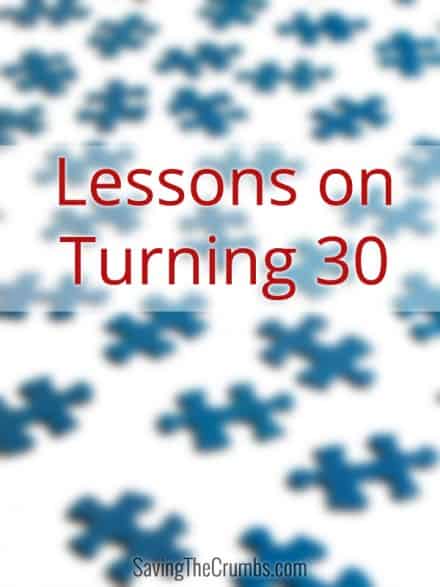Most of the time, the term “legacy” used in this context means “inheritance”, and typically a financial one, but I think that term encompasses more than that. So in this post, I want to share a little bit of our thinking so far of how we are viewing this responsibility to our kids. We’re still in the process of doing our estate plan, and there are a lot of technicalities and details that we’re still learning about. So you can look forward to us writing more about those things later, but first we want to share some principles that are surfacing for us in the process of thinking about these things.
So the following are five things that we want to accomplish for our children in our estate plan.
Make The Tough Decisions, So They Don’t Have To
So the first point here is the reason for us to have an estate plan at all. Nobody enjoys thinking about the prospect of death, but the fact is that, given enough time, we’re all going to die. So as a friend of mine loves to say, preparing an estate plan doesn’t mean you’ll die any sooner, it only means you die prepared.
Dying is no simple matter. There are debts to pay back, taxes to file, probate to go through, possessions to divide, assets to liquidate, financial accounts to close down, guardianship for minors to figure out, funeral/burial/cremation to arrange, etc. Since a death in the family is usually plenty traumatic enough, why not put some thought into it ahead of time in order to spare our families the added grief of having to figure these things out on their own–or God-forbid–duke it out with the courts or each other once we’re gone?
I believe that simply leaving all of our assets, liabilities, and other assorted problems for our families to deal with after we die is irresponsible. We are still accountable to God for the resources entrusted to us, we can’t pawn that responsibility off on the next generation just because we’re too lazy or superstitious to deal with it.
So some of the general types of issues to plan for are the following:
- Selection of a trustee/executor of the estate.
- Living will/advanced directive for end-of-life care.
- Power of attorneys for financial and medical matters.
- Guardianship of minor children.
- Disbursement of assets and personal belongings.
- Funeral wishes.
Leave Enough for Them, But Not Too Much
The Bible says in Proverbs 13:22:
A good man leaveth an inheritance to his children’s children: and the wealth of the sinner is laid up for the just.
So it is good to leave some material inheritance to our children, but I don’t believe that it should be a huge sum.
Giving large sums of money to children, especially young and inexperienced ones, can be a downright curse. It removes the incentive to learn to work and that money can be a gateway to a destructive lifestyle. (Ever read the story of the prodigal son in the Bible?) So how much to leave them? I like how Warren Buffett, one of the richest men in the world, put it:
A very rich person should leave his kids enough to do anything but not enough to do nothing.
Now I don’t believe we classify in the ranks of the “very rich”, but I believe the principle here is still true for those of us with modest estates. The point is, what we leave our children should primarily be a life free to pursue their God-given potential and opportunities, but NOT a life free from any hardship or challenges.
Naturally, the younger the child, the more resources we will leave for the guardians to care for her, and it will be adjusted as she grows to adulthood. But at no time will our kids receive 100% of our estate.
So where will it all go?
This goes back to the principle we hold that we are simply stewards (or managers) of the assets that God has given to our care. Since it doesn’t truly belong to us, we need to remember God in our estate plan as well. So our plan is to leave enough to provide adequately for our children’s needs (and this amount will vary through the years), and then give the remainder of our assets back to God through donations to church and charity.
Provide A Complete Education for Them
Right in line with what we’ve been discussing in the previous point, I believe that the best way to leave our kids “enough to do anything” is to provide them with a sound education. As the saying goes, “Give a man a fish and he will eat for a day, teach a man to fish and he will eat for a lifetime.” This is one of the big reasons why we are proactively saving up for our child’s education. The ability to provide for themselves financially will be worth far more than even a fully-stocked trust fund. This is an important point because the fact that we are making diligent efforts to provide financially for our kid’s education is precisely one big reason why there WON’T BE a large estate left over!
Now I want to be clear that to us, education encompasses far more than just formal schooling that leads to a career. Our view of education includes much more than simply what they know or what skills they develop, but rather what type of person they become—the type of character they possess. This element of the inheritance is far greater than simply dollars and cents. So in a sense, our daughter is starting to receive her inheritance now!
So it isn’t about leaving them with the largest amount of money possible, but rather giving them the best chance to become well-adjusted, self-reliant, God-fearing individuals.
A random picture so you’ll decide to keep reading the rest of this point.
Give Them Freedom from Being Our Retirement Plan
Somewhat on the opposite extreme of those who leave too much to their kids are those who plan to live off of their kids. Many parents make no retirement plans for themselves with the idea that their children will take care of them someday. And needless to say, this often leads to friction.
Parents who view their kids as their “retirement plan” may be biased against a child’s dream if they perceive that it compromises their ability to take care of them in their old age. Why allow their kids to become a pastor, missionary, or artist when they will make more money as a doctor or lawyer? Moreover, it can cause other problems such as when the parents don’t approve of their kids’ romantic relationships because they think their potential future in-law doesn’t earn enough money–no matter how well-matched they are otherwise. (You know what I mean…)
Coming from an Asian heritage, I totally understand that it is often a cultural norm for one generation to take care of the previous. I have no problem with that and believe it’s a value ensconced within the 5th Commandment to “honor our father and mother.” However, there is a big difference when the kids choose to take care of their parents in their old age willingly versus when the parents demand it and manipulate their children’s lives to optimize their own retirement security.
I’ve seen it both ways. Adult children who “fight” because each WANTS to have mom and dad live with them, versus those who really fight because no one wants mom and dad.
As for Deb and me, we hope to never require our kids to take care of us, but we would be lying if we didn’t admit that we hope that they would WANT to do it were it to become necessary. Our goal is to make adequate financial preparations for ourselves to not become a financial burden on our family should our health fail at some point, and to develop a loving relationship with them all through life that they would like to have us around them.
Enable Relationships Unencumbered By Money Issues
Much of what I’ve mentioned up to now has really been driving to this point. Money can drive a dividing wedge between loved ones like nothing else, and so much of our estate planning process is intended to preempt and prevent as many such issues as possible.
The fact is that when the death of a loved one involves money, it almost inescapably engenders strife within the family. How great if we were able to prevent that from happening in ours! By making the tough decisions ahead of time for ourselves, saving adequately so we aren’t reliant on our loved ones entirely in our time of need, making deliberate efforts to prevent money from being a central aspect of the inheritance, and also by leaving clear instructions, we hope to proactively avoid the factors that have potential to drive our family apart.
Simply put, our hope is that money can remain in the background of our family dynamics, carefully managed to enhance those relationships rather than detracting from them. The greatest legacy of all that we want to leave our children is that of loving relationships with us and with God. We realize that money will somehow play a part in accomplishing that, but we want to prevent the cloud of financial issues from obscuring that objective. Of course, as our life circumstances change, some of the details may be altered or adjusted down the line, but we hope that with some preemptive planning, we can leave a legacy for our children that accomplishes these things.
I’m sure we didn’t catch everything. What are some other principles that you would consider in creating your estate plan?








